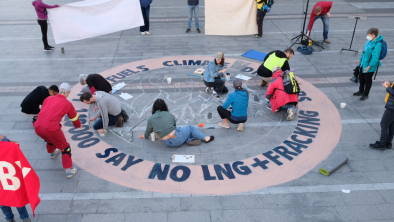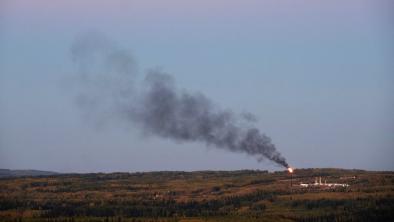B.C. Court of Appeal to webcast case for only 2nd time
CBC News

In the age of Periscope and Facebook Live, where everything from childbirth to murder has been streamed online, a webcast of a courtroom might seem unremarkable.
But in Canada, where cameras in courtrooms are hotly debated and not routinely allowed outside the Supreme Court of Canada, it's worth noting — even if the proceedings may be a little dry.
Today, the B.C. Court of Appeal is webcasting its second case ever: Taseko Mines' appeal of its defamation case against the Wilderness Committee, which the environmentalists won in B.C. Supreme Court last year.
"That is a pretty important case about freedom of speech on political issues," said media lawyer David F. Sutherland, a supporter of cameras in the courtroom who is not involved in the case.
"The public pays for it. They should know what's going on."
We won't rush,' says court
Today's webcast is part of an ongoing pilot project by the B.C. Court of Appeal, but it's been nearly four years since the last webcast, said Sally Rudolf, legal counsel for the court.
In 2013, it chose the landmark doctor-assisted suicide case Carter v. Canada — which later went to the Supreme Court of Canada — as its first.
Since then, it's taken time to muster the resources and find the next case that might have enough public interest to bother streaming live, said Rudolf.
The point of the webcast is to "allow greater public scrutiny of the court process," and make it easier for the public to access what's meant to be an open court, she said.
The pilot will include only three cases, with the third yet to be chosen.
"We won't rush into one, but we hope to conclude it within the next year or so," said Rudolf.
Less drama at appeal
Appeal courts are considered safer ground to experiment with cameras — and previous pilots have happened in Ontario and elsewhere — because some of the normal arguments used against them don't exist.
Unlike a trial court, there are no witnesses that could possibly be scared off by the publicity and no cross examination. Instead, lawyers make arguments to a panel of judges on points of law.
"Usually, there isn't that sort of drama in a court of appeal proceeding," said Timothy Outerbridge, registrar for the court.
Or, as the Vancouver Sun's legal columnist described the appeal process: "mostly like watching paint dry."
"I wouldn't agree that it's quite that boring, but it's certainly not as exciting as the cut and thrust that you might see at trial," said Outerbridge.
But entertainment, of course, is not the point.
Beyond increasing general access, the past webcast was seen as valuable to those affected by the case, including the terminally ill, who couldn't be present and has also become a useful teaching tool.
'Dragged kicking and screaming'
Sutherland thinks it would benefit the court, as well, if more people could watch how the legal system works.
"An awful lot of courtrooms are empty except for the participants," he said.
Two webcasts in four years is "maddeningly slow," he said, but the courts are grappling with a lot of changing technology and, by their nature, move cautiously.
He'll be watching for the results of the pilot, when they come, but hopes the public comes to expect virtual access.
"I suspect courts are going to be dragged kicking and screaming into the 21st century, and where it doesn't interfere with the process … I think it should be welcome."
After the pilot, the court will evaluate feedback from inside and outside the system and figure out if there's enough interest to justify the expense.
Photo Credit - Mike Laanela/CBC - Read the original article here


